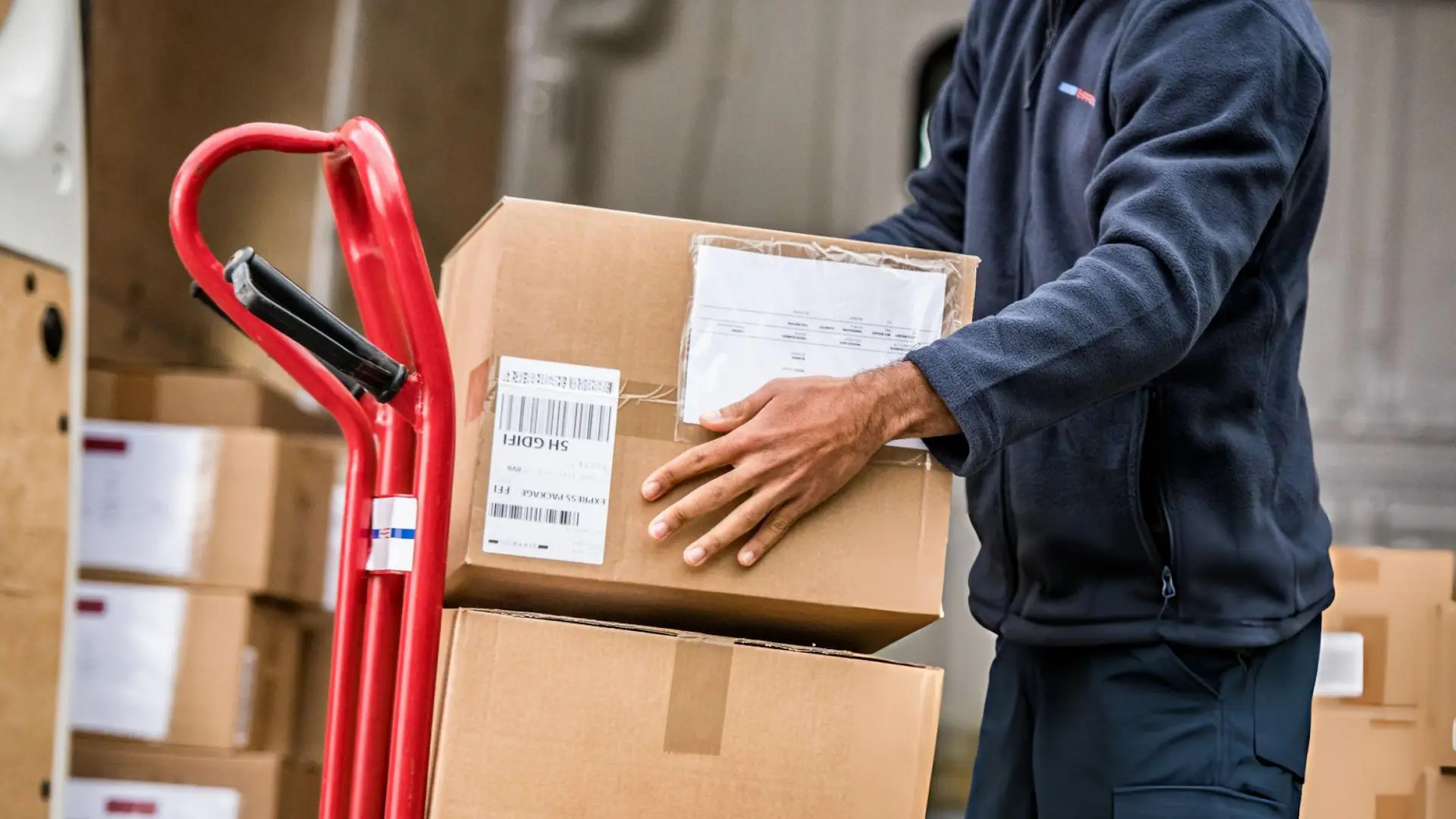Understanding Courier Services: A Comprehensive Guide
.webp)
Choosing the right courier service is crucial whether you're sending a birthday gift to a loved one overseas or shipping critical documents domestically. This guide will explore the ins and outs of various courier services, focusing on cost, efficiency, and reliability.
What Are Courier Services?
Courier services are specialized delivery services that transport documents, packages, and goods between locations. They are known for their speed, reliability, and efficiency, offering a range of services that cater to diverse needs, from personal deliveries to business logistics. Unlike regular postal services, couriers provide a variety of premium features, including express delivery options, real-time tracking, secure handling, and specialized services for delicate or valuable items. These services are often utilized by individuals and businesses alike who require fast and secure transport of their items, ensuring that shipments reach their destinations promptly and in excellent condition. Couriers play a crucial role in global commerce, facilitating the rapid movement of goods across cities and countries, which is essential in today's fast-paced, interconnected market environments.
Understanding the Cost Structures of Courier Companies
Courier companies use varied pricing models that reflect the range and complexity of services they offer. These cost structures are designed to meet different shipping requirements efficiently while maintaining profitability. Key components of a courier's pricing strategy include:
- Base Rate: This is the initial cost of shipping, which is typically influenced by the size and weight of the package. Most courier companies use a tiered pricing system based on these parameters.
- Distance: Shipping costs vary significantly depending on the destination. Longer distances generally incur higher fees, with international shipments costing more due to additional handling and customs procedures.
- Speed of Delivery: Options range from standard to express delivery, with faster speeds attracting premium rates. This allows customers to choose a balance between cost and urgency.
- Special Handling and Services: Additional fees are charged for services such as handling fragile items, temperature-controlled shipping, or delivering to remote locations. These reflect the extra care and logistics required.
- Fuel Surcharges: Many couriers adjust their rates based on fluctuations in fuel prices, incorporating these as surcharges that may vary monthly or annually.
- Volume and Frequency Discounts: Businesses that ship large volumes or have regular shipping schedules can often negotiate lower per-package rates, reflecting the ongoing business and reduced handling complexity.
How Much Does International Shipping Cost with a Courier?
When sending packages internationally, the cost can vary significantly depending on various factors. Understanding these can help you choose the most cost-effective option for your needs. Here are some key points that affect international shipping costs with couriers:
- Destination: The further away the destination, the higher the cost. Shipping rates also vary depending on whether the destination is within a major city or in a remote area, which might require additional logistics and increase the cost.
- Package Size and Weight: Larger and heavier packages typically cost more to ship internationally. Couriers often have pricing tiers based on weight brackets, so knowing the exact weight of your package can help you estimate costs more accurately.
- Delivery Speed: Faster delivery options like express or overnight shipping significantly increase costs. If timing is flexible, choosing standard shipping can save money.
- Insurance and Value of Contents: Higher value packages may require additional insurance, which can increase the overall cost of shipping. It's essential to decide whether the extra security is worth the additional cost based on the contents being shipped.
- Customs and Duty Fees: Depending on the destination, customs and duty fees may apply, which are not always included in the initial shipping quote. These fees can vary widely by country and item type.
- Special Handling: Fragile, perishable, or hazardous materials may require special handling and packaging, which can increase the cost.
- Volume Discounts: Businesses shipping large volumes or frequent shipments might be eligible for discounts, which can reduce the cost per package.
Courier Services vs. Regular Postal Services
When choosing between courier services and regular postal services, it's important to understand the distinct advantages and capabilities of each, especially in terms of customization, specialization, and service delivery. Here are the key differences that set courier services apart from regular postal services:
Customization and Flexibility
- Courier Services: Offer customized solutions tailored to specific needs, such as the choice of delivery speed, handling of sensitive materials, or specific time slots for delivery.
- Postal Services: Generally operate with standard options and less flexibility in terms of service customization.
Speed and Efficiency
- Courier Services: Known for faster delivery times, often providing same-day or next-day delivery services, especially within urban areas.
- Postal Services: While improving, they typically offer slower delivery times and might not guarantee exact delivery dates without premium charges.
Tracking and Security
- Courier Services: Provide detailed tracking systems that allow customers to see the real-time location of their packages. Enhanced security measures are also in place for the handling of valuable or delicate items.
- Postal Services: Tracking capabilities exist but can be less detailed compared to couriers. Security and handling may not be as robust, particularly for high-value items.
Customer Service
- Courier Services: Often provide more dedicated customer service with accessible support teams ready to handle queries and resolve issues quickly.
- Postal Services: Customer service can be less personalized, with sometimes slower response times and generic resolutions.
Pricing Structure
- Courier Services: Can be more expensive than postal services, reflecting their specialized offerings and higher service levels.
- Postal Services: Usually more cost-effective for standard shipping needs without the need for rapid delivery or special handling.
Handling of Special Goods
- Courier Services: Are better equipped to handle special or unusual shipments such as perishables, hazardous materials, or oversized items.
- Postal Services: May have limitations on what can be shipped, with additional regulations for special items.
Global Reach and Accessibility
- Courier Services: Often have a broader global network, which facilitates easier and quicker international shipping.
- Postal Services: While they also provide international services, the process can be slower and more prone to delays compared to couriers.
What to Do if Your Package is Lost
Despite best efforts, sometimes packages get lost. If this happens, contact your courier company immediately. They can initiate a search and potentially offer compensation depending on the service terms.
- Contact the Courier Company Immediately: As soon as you notice that your package is missing or excessively delayed, reach out to the courier’s customer service. The sooner they know about the issue, the quicker they can begin to resolve it.
- Provide Detailed Information: Have your tracking number ready, along with any other relevant information that could help the courier track down your package. This includes the package description, the sender and recipient details, and the estimated time of arrival.
- Request a Tracking Update: Ask for the latest information on your package's whereabouts. Sometimes packages are not actually lost but delayed due to logistical issues or incorrect routing.
- Initiate a Search Request: Request that the courier initiates a formal search for your package. This process involves checking various points of the delivery chain where the package might have been last recorded.
- Check Insurance Coverage: Review the terms of your shipping agreement to understand the insurance coverage for lost packages. Knowing whether your item was insured and for how much can help manage expectations regarding compensation.
- File a Claim for Lost Package: If the package is indeed lost and cannot be recovered, file a claim for compensation. Be sure to complete this step within the timeframe specified by the courier’s policy.
- Keep Records of All Communications: Maintain a record of all correspondence with the courier. This documentation can be useful if you need to escalate your claim or provide proof of your efforts to resolve the issue.
- Follow Up Regularly: If your case is not resolved immediately, keep in regular contact with the courier to check on the progress of your claim or search. Persistence can be key to getting a satisfactory resolution.
Couriers and Ecommerce Brands: Selecting the Right Partner
For ecommerce brands, selecting the right courier service is essential for ensuring customer satisfaction and streamlining logistics. A reliable courier partner not only guarantees timely deliveries but also enhances the customer experience, ultimately affecting the brand's reputation. E-commerce brands should look for the following key features in a courier service:
- Speed of Delivery: Fast delivery options such as same-day or next-day delivery can significantly enhance customer satisfaction.
- Reliability: A track record of dependable service, with high success rates in timely deliveries.
- Cost-Effectiveness: Competitive pricing for various shipping options without compromising service quality.
- Scalability: The ability to handle varying volumes of shipments, especially during peak seasons or promotions.
- Customer Service: Strong support for resolving delivery issues and handling customer queries promptly.
- Return Management: Efficient processes for handling returns, which is critical for customer trust and retention.
How Atomix Can Help with Choosing the Right Courier for Your Ecommerce Brand
For ecommerce brands, partnering with the right courier is not just about delivery; it's about enhancing the overall customer experience. If you're looking to streamline your logistics and enhance delivery services, consider reaching out to Atomix. Our expertise can help you navigate the complexities of courier services and select the ideal courier company that aligns with your specific needs, ensuring that your products reach your customers promptly and safely. Reach out to us today to learn more about our network of courier services.

.svg)
.svg)
.svg)




